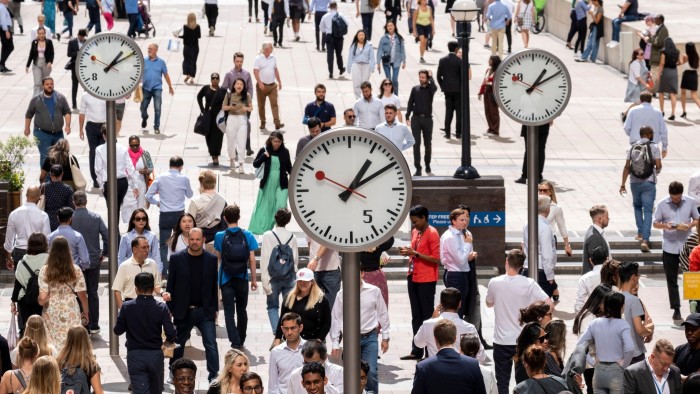Middle and higher earners face increasing tax burden

Unlock the Editor’s Digest for free
Roula Khalaf, Editor of the FT, selects her favourite stories in this weekly newsletter.
A “triple whammy” of tax rises, allowance cuts and threshold freezes will increase the tax burden for some middle and higher earners by thousands of pounds a year, new calculations have shown.
Someone earning an annual salary of £35,000 realising a £10,000 gain and receiving £2,000 in dividends in 2025 will need to pay an additional £1,261 in tax compared to 2024, according to calculations by investment broker Interactive Investor. A person earning £50,000 a year who realised a £10,000 gain and received £2,000 in dividends would pay an extra £1,831 in tax. The bill rises to an extra £3,836 for someone earning £100,000.
The additional burden comes from several changes made to the tax system, both at the Autumn Budget and in recent years.
These include increases in the rates of capital gains tax, reductions in the amount of tax-free allowance on capital gains and dividends, and a freeze on the personal allowance at which people start paying income tax.
“More people have been dragged into paying tax or higher rates of tax as their wages rise and cross the unchanging thresholds,” said Myron Jobson, senior personal finance analyst at Interactive Investor.
“Those with investments held outside tax wrappers now face a significantly higher burden exacerbated by the recent hikes in CGT rates announced in the October Budget.”
The less generous tax regime for individuals amounted to a “triple whammy” for many, which could make navigating the tax landscape “feel like a minefield”, Jobson said.
CGT rates on shares increased from 10 per cent to 18 per cent for basic rate taxpayers and 20 per cent to 24 per cent for higher-rate taxpayers at the Autumn Budget.
The CGT allowance was also reduced from £6,000 at the start of the 2023-24 tax year to £3,000 in April 2024. Similarly, the dividend allowance was cut from £1,000 in April 2023 to £500 in April 2024.
Meanwhile, the freeze on the personal allowance at £12,570 from April 2022 until April 2028, combined with wage inflation, means more people will pay higher taxes in the coming years — a process known as fiscal drag.
However, while the tax system has become less generous, advisers said there were ways people can manage their affairs to mitigate the impact.
“If your income is close to a threshold, you might consider contributing to pension funds or other tax-efficient schemes to mitigate potential tax increases,” said Mike Bagg, tax partner, at Milsted Langdon, an accountancy firm.
“Simple actions now, such as salary sacrifice arrangements, can provide meaningful savings over time, especially for those so close to the higher tax brackets.”
Other options that Jobson mentioned included splitting sales across two tax years to minimise CGT and using losses on investments to offset gains.
“If your tax position is complicated, it may be worth seeking professional advice from a certified tax adviser to identify where you can save,” Jobson added.
#Middle #higher #earners #face #increasing #tax #burden




